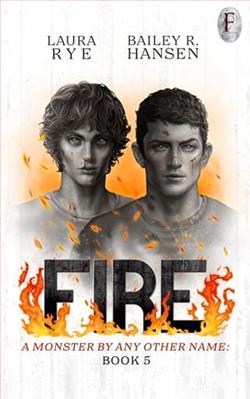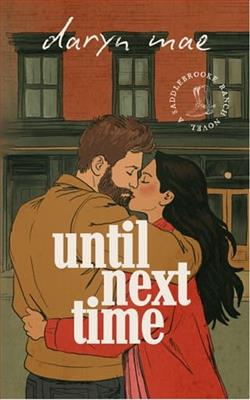Page 112 of The Chain
“They are. They sent me a message at Thanksgiving.”
“Perfect!” Erik exclaims.
“How would it work?” Rachel asks.
“You would have to provoke them or threaten them or worry them sufficiently so that they want to communicate with you. They may message you or, better yet, call you on a burner phone. If they talk long enough, we run the software, and we can possibly triangulate the base cell tower their phone is in contact with.”
“And if they’re in Times Square or driving or otherwise on the move? We’ll have pissed them off with no hope of finding them. And we’ll have painted a target on our backs and they can come after us!” Pete protests.
“The plan is not without risk,” Erik says.
“Forus.It’s all risk for us. It’s zero risk for you,” Pete says.
“What would I have to do, exactly?” Rachel asks.
“No! Rachel, don’t agree to—” Pete begins.
“What would I have to do?” Rachel repeats.
“You must get in a dialogue with our Unknown Caller on Wickr or, better, on the phone and let me run a live trace when they contact you.”
“What do you mean, a dialogue?”
“You draw out the conversation as long as you can. The Wickr trace isn’t very accurate, I’m still working on the software, but a phone trace? A phone trace from a conversation that could last two or three minutes? That would be great.”
“What would happen?”
“I trace them through the hunter-killer algorithm and eventually with a little luck I find the base cell tower that the call is coming from.”
“Does it work with landlines?” Pete asks.
“If they’re dumb enough to call us on a landline, I’ll have them in two seconds.”
“I think that will make them think I’m some kind of a problem,” Rachel says. “A long conversation like that. I’ll be drawing their attention to me and my family.”
“Yes,” Erik agrees. “And I must confess that the app is not fully functional. I am very much in the beta stage. Tracing a phone call that could be anywhere in the whole of the United States requires a lot of computing power.”
“What if you could ignore most of the United States and just focus on one area?” Rachel asks.
“That would make things a lot easier,” Erik says. “But I can’t do that. They could be calling from anywhere. Even abroad. I—”
“She’s from Boston. And The Chain seems to operate mainly in New England. Close to home. They’re keeping it nearby. That’s what I would do in case of trouble.”
“How do you know ‘she’ is from Boston?” Erik asks. “I didn’t notice a Boston accent.”
“She’s gotten rid of it. She talks very deliberately when she’s using the voice-distortion machine. But you can’t quite get rid ofall the intonation, can you? I started to suspect it, and I tried something with her in one of our conversations. We were talking about the Boston police and I said that they would arrest you forbanging a uey. She laughed at that because she understood it. I’d never heard that expression before I moved here. There’s probably a lot of people outside of Boston who would also understand it, but my hunch is that she’s a Bostonian.”
Erik nods. “This is helpful. If the app doesn’t have to search anywhere but New England, it would be a lot more efficient. Orders of magnitude more efficient. North America has five hundred million people and billions of phone lines. New England has perhaps ten million people.”
“Your app might work fifty times faster,” Rachel says.
Erik nods. “Perhaps.”
“But there must be some other way of doing this, one that doesn’t involve drawing attention to ourselves,” Pete says.
“None that I’ve been able to come up with. You still have a direct contact with them. It will be risky but not recklessly so. We run the app, and when we find out where they are, we leave an anonymous tip with the police. Maybe even wait a month or so, so they don’t make the connection between our call and their arrest.”
“I don’t like the sound of this at all,” Pete says.















